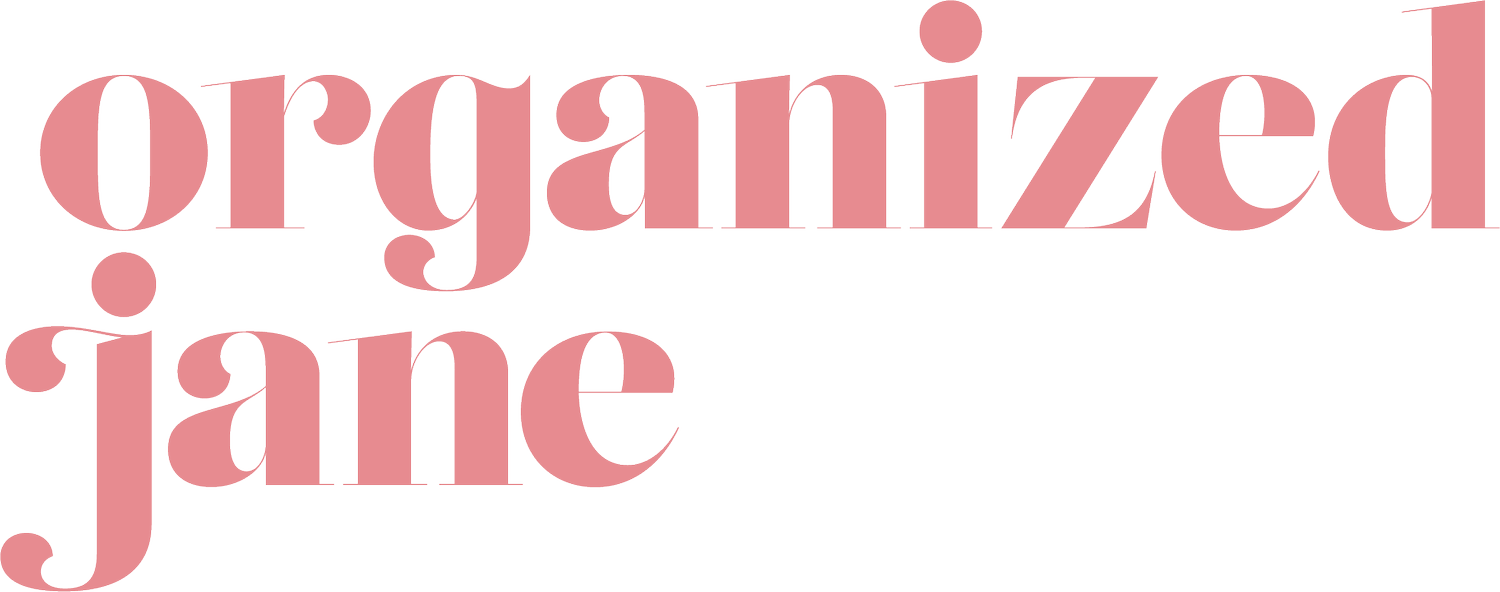How Being Organized Equals A Healthy Lifestyle
Getting organized can be overwhelming and daunting. Often, the hardest part is figuring out where to start.
For this blog post in video form, please head to my YouTube channel or check the bottom of this post.
Want tips to help start and keep a healthy lifestyle? This post is all about how being organized is linked to staying healthy.
Getting organized can be overwhelming and daunting. Often, the hardest part is figuring out where to start. But that’s something I can help with, because I’ve already done the research, and pulled together a few insights that I know will help motivate you to make organizing a priority - especially for your health. I have shared this research with clients and in my book.
Priority scheduling
Healthy habits can evolve through being organized, and being healthy is, of course, one of the most important aspects of your life. Open your calendar: are your workouts scheduled for the next two weeks? Scheduling your exercise will help make it a priority and make you less inclined to skip it. Planning is also extremely helpful when it comes to healthy meals. A 2011 study by Riccardo Dalle Grave et al in The Journal of Obesity found that planning and organizing can be essential for weight loss, and can be related to stimulus control.
Additionally, being organized will make your environment more conducive to exercising. Laying out your clothes beforehand will ensure that you don’t skip your workout because you can’t find your workout clothes.
My signature method helps to really break down the planning and fitting it into your lifestyle to ensure a maximum health benefit.
Make your bed
I quote Tim Ferriss a lot, and one of his morning routine rituals is to make your bed. His advice is that it already provides one accomplishment for the day and makes it ready for bedtime.
Sleep is also vital to our health; a 2010 study by Jennifer Cowher Williams for the National Sleep Foundation found that people who make their beds have a 19% greater chance of getting a better sleep. The study also found that 75% of people get a better sleep when they’re sleeping in clean sheets.
Arianne Huffington’s book the, Sleep Revolution, is a must for anyone sleep deprived. She got a wake-up call when she ended up in the hospital because of sleep deprivation and now ensures her family, employees, and herself always get enough sleep.
Decluttering your brain
I’m sure you’ve heard this before, and I know you’re thinking it’s easier said than done, but de-cluttering your space can help de-clutter your brain, making you less stressed, and more productive. To begin de-cluttering, you need to make some hard decisions about what items are practical necessities, what items are emotional necessities, and what items are just plain trash. Everyone’s definition of what is clutter and trash will be different, and there are no set rules about what items fall into what category. Going back to my organizing mantra: the most important thing is that the items you keep need to fit your lifestyle, and if they don’t, they’re better off somewhere else. Start small and give yourself a goal for each room or part of your life. Some de-cluttering gurus suggest tackling categories instead of rooms—for example, starting with all of your clothing, or all of your books. Regardless of where you start, if you’re surrounded by clutter, whether it’s in a work area or a leisure area, then stress will always be lingering. Don’t believe me? A 2011 study by Stephanie McMains and Sabine Kastner featured in The Journal of Neuroscience argues that having less clutter means having more time, which means more hours to relax, sleep, eat healthy, and do the things you love.
Next week my post will be about how to increase productivity. Doing More with Less Stress!


